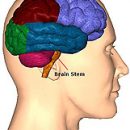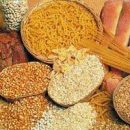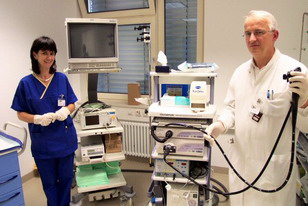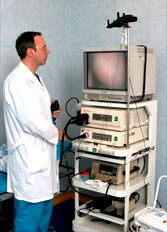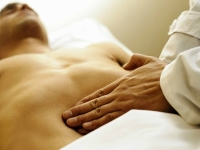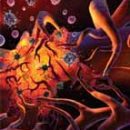What is Ezophagitis? What are the symptoms of Ezophagita? How is the treatment of esophagitis? Answers to these questions you will find in the article.
Content
Ezophagitis
Ezophagitis - inflammatory diseases of the mucous membrane of the esophagus. Ezophagitis is one of the most frequent diseases of the esophagus, but there are no accurate data on the frequency.
Acute esophagitis develops as a result of the mucous membrane burn
Hot food or drink, chemical irritating substances (iodine,
Concentrated acids and alkali - corrosive esophagitis),
observed in some infectious diseases (diphtheria and others.),
esophageal injury (foreign bodies, rack - with gastroscopy),
Radiation defeat. Abscess and phlegmon as a stage of esophagitis more often
develop with esophageal injury to a sharp foreign body (fish bone,
Metal needle and others.), especially when introducing it into the wall
esophagus.
Subacute and chronic Ezophagitis Remarks for
systematic alimentary violations (use too hot,
acute food, strong alcoholic beverages and their surrogates and t. D.),
Food allergies, stagnation and decomposition of food in the esophagus during its stenosis,
Cancer, in large diverticulas (stagnant esophagitis). Most often
Reflux-esophagitis (peptic esophagitis).
Reflux Ezophagit
arises due to cardius failure during axial hernias
esophageal hole diaphragm (in which through the esophageal hole
The diaphragms in the rear media shifts the esophagus and the proximal part
stomach), after operations on the esophageal and gastric transition, when
systemic sclerodermia and other diseases. Relative
Cardia deficiency, as well as the cause of reflux-esophagitis,
Observed with diseases accompanied by an increase in tone and force
Abbreviations of the stomach and his gatekeeper (ulcer of the stomach,
Gallgames and others.).
Essophagitis are spicy, subacute and chronic. By morphological
The painting is distinguished by esophagites Catarial, erosive, hemorrhagic,
Pseudomembranous, necrotic, as well as abscess and phlegmon esophagus.
Independent form include reflux-esophagitis.
Approximate diagnosis wording:
- Chronic alimentary catarrhal esophagitis.
- Acute corrosive hemorrhagic esophagitis.
Symptoms of Ezophagita
Clinical symptoms are different depending on sharpness and severity
inflammatory process. With acute catarrhal and erosive esophagitis
There is a feeling of burning, crushing behind the sternum. With more hard
The forms of acute esophagitis patients note a pronounced pain for the sternum
By swallowing. In hemorrhagic esophagitis, also observed
Bloody vomiting and melen, with pseudomambranous esophagitis in vomit
The masses are found in the films consisting mainly of the elements of the mucous
Firecut and fibrin shells.
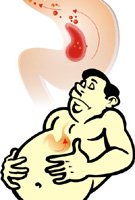
The most difficult with the pattern of septic
intoxication proceeds abscess and phlegmon esophagus. X-ray
Study with acute erosive, hemorrhagic and pseudomambranous
Ezophagitis is low-informative for diagnosis, with abscess and phlegmop
esophagus it should be carried out with the greatest caution.
Ezophagoscopy with acute esophagitis is contraindicated, the diagnosis is based
PA Data Anamnesis and Clinical Picture. To complications for severe
The forms of acute esophagitis include the development of media flooring.
In chronic esophagitis of the complaint in patients the same as in acute
Ezophagitis. During reflux-esophagitis, a stubborn heartburn is observed,
tightening, amplifying when tilting the body and horizontal
Patient position, often - pain behind the sternum by swallowing.
X-ray study conducted in a horizontal position
the patient allows you to reveal the gastroofor reflux, install
The presence of hernia of the diaphragm esophageal hole. With the help of esophagoscopy
evaluate the degree and nature of the inflammatory damage to the esophagus (usually
The inflammatory process is localized in the distal part of the esophagus),
Reveal gastroofing reflux, hernia of the esophageal hole
Diaphragm. During reflux-esophagite, the acidity of gastric juice is increased.
A long current reflux-esophagitis may complicate
Inflammatory and scar stricture of the esophagus.
The diagnosis of acute esophagitis usually does not cause difficulties. At
Reflux Ezophagite Clinical Picture Also in most cases
characteristic, significant difficulties in differential diagnosis with
other diseases do not occur. X-ray study with susceptible barium sulfate and esophagoscopy confirm the diagnosis. IN
individual cases when the prudent pain resembles a coronary,
Differential diagnostic difficulties allows you to resolve
Electrocardiographic examination, including a load
(cyergometry).
Treatment of Ezophagita
With acute esophagitis, especially hemorrhagic, pseudommabranous, and
Also, with an abscess and phlegmon of the esophagus, an urgent
hospitalization in the surgical department. With abscess and phlegmon
esophagus conduct treatment with antibiotics, in the absence of effect
Execution is shown. With light shapes of esophagitis for several days
Prescribed hunger and antacid drugs (Almagel, Phosfalugul and DR.).
With reflux-esophagitis, a gentle diet of the anti-sized type is recommended (diet No. 1, 1B),
inside accept antacid and binders (Almagel for one
dosing spoon, vicaline or vicair 1-2 tablets in the form of suspension in
warm water and others.).
These drugs are prescribed 5-6 times a day - after
every meal and night, before bedtime. Sleep recommended with high
lighted headboard bed (in order to avoid night
Gastrointestinal reflux), all types of work are not recommended,
associated with lifting weights over 3-4 kg or tilt of the body. At
Reflux-esophagitis due to axial hernias of esophageal
The holes of the diaphragm, in the absence of an effect from conservative
Therapy shows an operational treatment that is listed
Herge Bag in the abdominal cavity and fixation of an abdominal cut
esophagus in the esophageal hole diaphragm. Patients with Reflux Ezophagitis
Due to the complexity of eliminating the cause supporting its (deficiency
cardia) should be on dispensary accounting, systematically (2-3
times a year, according to the testimony and more often) to carry out prophylactic (in
avoiding the exacerbation of the process) antacid and astramic treatment courses
means.

